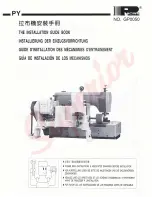
PIR1200R VELLEMAN
1
PIR1200R - - PIR Motion Detector
1. Introduction
The
PIR1200R
is a very sensitive and energy-saving motion detector. It is equipped with an IC and uses SMT
technology. The detector’s position can be adjusted vertically. Motion detectors are triggered when movement is
detected and the
PIR1200R
can distinguish between night and day. Installation of the device is very easy and it is
suited for a wide range of applications.
2. Specifications
Power Source
220-240Vac
Power Frequency
50-60Hz
Ambient Light
< 3lux- daylight (adjustable)
Activation Duration
min. 8sec. ±3sec. / max. 7min. ± 2min.
Detection Angle
180°
Detection Range
12m max. (< 24°C)
Working Temperature
-20°C to +40°C
Working Humidity
< 93% RH
Installation Height
0.5m to 3.5m
Power Consumption
0.45W (standby 0.1W)
Motion Speed Detection Range
0.6 ~ 1.5m/s
Rated Load
1200W (220-240Vac)
3. Operation
•
You can adjust the vertical position of the device to suit your needs. Note that the detector is much more sensitive
to objects moving across the detection area (fig. 1 below) than it is to objects coming straight at it (fig. 2 below).
This is a very important consideration when selecting the mounting location.
•
The device can distinguish between day and night thanks to the adjustable ambient light setting. The device can
work in the daytime when the “sun” (max.) position is selected with the selector at the back of the device. The
device only requires an ambient light level of 3lux when the “moon” (min.) position is selected.
•
TIME adjustment
: enables the user to set the activation duration (min. 8sec. ±3sec., max. 7min. ± 2min.)
4. Installation (see fig. 3 & 4 on p. 2)
•
Deactivate the fuse and remove it.
•
Remove the screw at the bottom. Remove the two recesses and insert the wires through the holes.
•
The bottom part of the housing is mounted with the included screw.
•
Connect the wires according to the figures on p. 2.
•
Attach the sensor to the bottom part of the housing. Screw the housing shut and connect the device with the
mains.
Fig. 1
Fig. 2



























